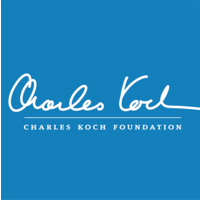DEBRA MASHEK: The mission of Heterodox Academy is to improve the quality of scholarship and education in higher ed by increasing open inquiry, viewpoint diversity and constructive disagreement across lines of difference. We activate on this mission in four ways. The first thing we do is try to increase public awareness about why these issues matter to education, to professors, to students. We also try to create tools and resources that professors, administrators and others can deploy within their local context to increase open inquiry and constructive disagreement. We look for model institutions, model individuals and model groups and try to hold them up to show others how to do this difficult work, and then we also create communities of practice by bringing together, for instance, disciplinary scholars. So rigging together a bunch of psychologists and helping them think through what open inquiry looks like in their discipline, in their journals, in their conferences and so on.
So the definition of viewpoint diversity is when you have – it's merely descriptive. It describes a community, a campus or a classroom where you have people approaching questions from a range of different perspectives. Those perspectives can be disciplinary perspectives, theoretical perspectives, experiential, demographic and also ideological. And the thinking is that when you have a lot of people asking questions and interrogating claims from a lot of different perspectives you're actually able to see the nuance in whatever that thing of inquiry happens to be whether it's about the aesthetic world or the cultural world or the social world or the political world. That when we think together we're able to see more of that texture. So viewpoint diversity is something that we advocate for and within the Academy we're trying to open up the range of viewpoints that are allowed in, that are welcomed, that can reasonably be interrogated on campus.
A current issue right now is that of immigration and so a lot of people on campus feel like oh, immigration, the borders should be totally open. And there are absolutely scholars and students who want to interrogate that claim a little bit who might say under what conditions does it make sense to have a closed border or how might we implement a semipermeable border. And on some campuses even asking those questions will draw accusations that you must be a racist or a xenophobe. And so when those words get dropped into conversation rather than keeping the conversation going what they do is they shut it down and in those cases what people learn very quickly is that there are a right set, there is a right set of questions you are allowed to ask. There is a right set of conclusions you're allowed to come to. And if you are not sure what you think or if you think something differently it's best to often, or people are learning that it's best to sit on the sidelines and to not ask those questions and to not stake those claims.
Academic freedom is a really big crucial value concept in higher ed and academic freedom is the idea that professors should be able to research whatever questions they would like to and that they are free of being fired by their institution. They're free of backlash because of the kinds of questions, the kind of scholarship that they engage in. When you think about internationally there are, scholars are often at incredible risk. They receive death threats for their research. They find situations where, or sometimes professors are in situations where they actually need to flee their home countries with their families because of the intellectual work they're doing. Thank goodness academic freedom is a revered value in the American higher education system. It is part and parcel of open inquiry.
So this notion of well what is open inquiry, what does it mean to create spaces where open inquiry can happen. It means ensuring that people from a range of perspectives can ask questions, that they can follow the data wherever those data may lead. That when they come to conclusions that scholars can come together and think together and interrogate those conclusions without feeling like they're going to be exposed to social censure or that they're going to receive threats or lose their jobs. So it's really about ensuring that people are free academically to pursue questions and that's true of all scholars and that they're free from social censure.






